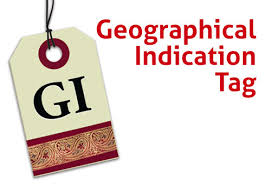GI Tag for Goan Cashew
In a significant development, Goan cashew, known for its long and cherished heritage, has been awarded a Geographical Indication (GI) tag. This recognition, granted by the Geographical Indications Registry in Chennai, establishes Goan cashew as a unique product originating from a specific geographical region. The GI tag serves as a trademark, distinguishing it in the international market. The impact of this prestigious tag on the Goan cashew industry is substantial, as it aims to preserve tradition and authenticity.
Significance of the GI Tag
- The GI tag provides a means to differentiate authentic Goan cashews from those sourced from outside the state, often misleadingly marketed as ‘Goan cashews.’
- The application for the GI tag was submitted by the Goa Cashew Manufacturers’ Association (GCMA), facilitated by the Department of Science, Technology, and Waste Management, Government of Goa.
- Traders will not be allowed to use the ‘Goa cashew’ logo on packaging without proper registration.
Challenges and the Importance of the GI Tag
- In recent years, many small traders from other states and countries have captured a significant portion of the cashew market in Goa by marketing cheaper imported cashews as ‘Goan cashews.’
- Such traders do not always comply with quality, packaging, or weighing standards, leading to products of inferior quality. This negatively affects the ‘brand Goa.’
- Due to the influx of cheaper cashews, several Goan processing units and manufacturers have struggled to sell their produce within the state. Some have had to explore markets outside Goa, reduce production, or even close their factories.
- Higher minimum wages and compliance norms in Goa, compared to other states, have contributed to the decline in sales for traditional Goan cashew processors.
- The number of processing units in Goa has reduced from 40 in 2005 to just over 15 at present.
The Future Impact of the GI Tag
- The GI tag is expected to enhance the recognition and reputation of Goan cashews in both domestic and international markets.
- It is especially valuable for export, as it promotes trust in the authenticity and quality of Goan cashews.
- The government has expressed its commitment to cracking down on illegal marketing practices, ensuring the integrity of the GI-tagged product.
Historical Significance
- Cashew was introduced to Goa by the Portuguese in the 16th century. Initially, it was primarily used for afforestation and soil conservation.
- The economic value of cashew nuts became apparent about a century later when Goan prisoners exiled to Portuguese territory in Africa (Mozambique) during the freedom movement discovered the edible value of cashew nuts.
- The first cashew factory in Goa commenced operations in 1926, and the first consignment of cashew kernels was exported in 1930.
- Cashew production evolved from a cottage industry to a large-scale one, facilitating foreign trade primarily with the USA.
- In 1961, the cashew processing industry accounted for around 60% of industrial production in Goa, with a significant portion exported to various countries.
Month: Current Affairs - October, 2023
Category: India Nation & States Current Affairs




